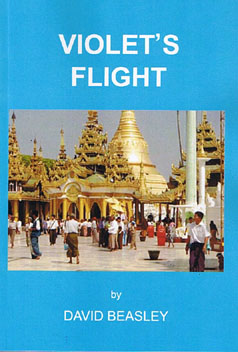

 THE ROLE OF MEMORY IN THE POETRY OF ALFRED LORD TENNYSON by Violet E. Beasley Tennyson is, above all, a supreme artist. His poems reveal the meticulous care of his craftsmanship and skilled exploitation of his talents as artist, including his melancholictemperament and strong sense of the past. While many critics have furnished clues about Tennyson's preference for the past, they have not, except for a few, focused on his pervasive use of memory as a means of evoking the past or on the kind of pleasure he receives from it; for characteristic of Tennyson's poetic use of the past is his evocation of memory. The few critics who have recognized Tennyson's poetic interest in memory, however, have not explored fully its significant function in his poetry. The chief importance of memory in Tennyson's poetry is that, through it, he presents his diverse themes in a variety of ways. By analyzing his use of memory in his poetry, therefore, this study attempts to show Tennyson as the abiding experimentalist in the use of the poetic memory. The poems discussed in this book comprise selections from his earliest volumes and Poems (1842), In Memoriam, Maud, and Idylls of the King. They are chosen not only for their rich illustrative variety in the use of memory but also because they span the whole of his poetic career and, therefore, attest to his consistent concern with memory. Furthermore, through the examination of memory in his poetry we arrive at a deeper understanding of his poems' meaning and come to appreciate better his supreme skill as artist.ISBN: 978-0-915317-35-6 PRICE: $16.95 Cdn & US |
 Violet's Flight, or Kahbia by David Richard Beasley J apanese Armies invaded an almost defenseless Burma in 1942, sending tens of thousands fleeing over the mountains to India. They ruled the remaining Burmese, whom they boasted of liberating from British rule, with arrogance and brutality. Violetʼs Flight narrates the experiences of a young Anglo-Burmese girl and her relatives growing up happily under the British and their ordeal either escaping the Japanese or living under the occupation or fighting in the resistance.The battles won by the allied armies coming out of India to retake Burma in 1944-45 are seen through the eyes of Japanese officers, who watch their armies suffer in their turn the agonies of defeat in war. The seeds of fascism sown by Aung San and his Burma Independence Army by joining the Japanese invasion, until disenchanted, grew like a weed, which poisoned Burmese society against Anglo-Burmese and other ethnic Burmans—strangling its bloom with an iron-fisted dictatorship. ISBN: 978-0-915317-25-7 PRICE: $20 U.S. &CDN |